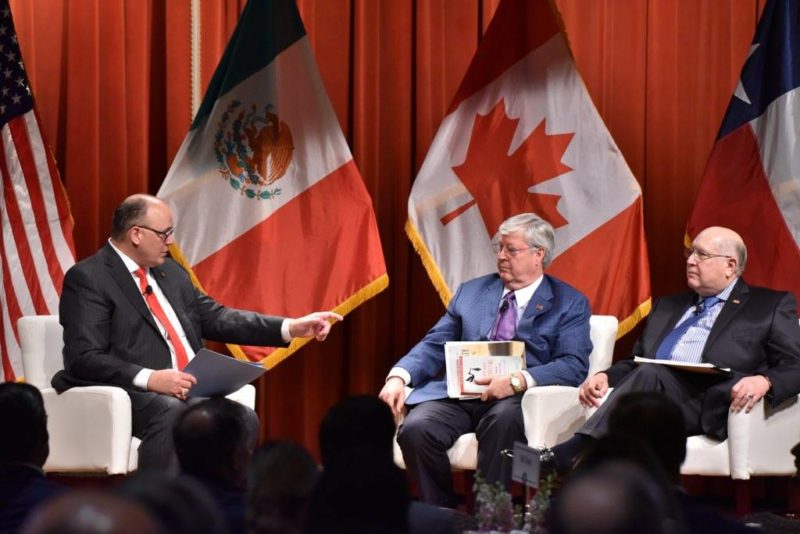Texas business leaders are hailing news out of Washington that the Democratic leadership in the U.S. House of Representatives and the White House have reached a deal to approve the U.S.-Mexico-Canada Agreement (USMCA).
The deal is an updated version of the 1994 North American Free Trade Agreement (NAFTA), which lowered trade barriers among the U.S., Mexico, and Canada.
Jeff Moseley, the CEO of the Texas Association of Business, told Spectrum News Austin in an interview, “The Texas Association of Business is officially declaring today a good government day.”
“After two years of working with our membership, working with the members of Congress from the Texas delegation… we’re very very pleased that our Texas Congressional delegation is really strongly supporting the USMCA ratification and we’re heartened by Speaker Pelosi’s announcement that she’s ready to go forward with putting it on the floor for a vote.”
Democrats and Republicans alike in the Texas Congressional delegation had supported the deal, which has already been ratified by the Mexican Senate.
U.S. Rep. Michael McCaul, who represents part of Austin, said he was excited that the treaty would finally get a vote on the U.S. House floor. “This is a huge win for Texas business owners, farmers, ranchers and so many more. The passage of this bill would mean overwhelming economic support for nearly 1 million Texas jobs.”
Texas Farm Bureau President Russell Boening commented, “This critical agreement will bolster a U.S. farm economy that is in desperate need of new market opportunities and momentum. It is expected to increase U.S. agricultural exports by $2 billion and result in a $65 billion increase in gross domestic product.”
Moseley said the deal would help the Texas economy by ensuring that Texas exporters have access to markets in Canada and Mexico and reducing uncertainty around the terms of investing in those countries.
“Getting this updated version of NAFTA is significant because it takes way some of the question marks about going forward in trade with Mexico and Canada,” he said.
Asked about differences between USMCA and NAFTA, Moseley pointed to new provisions dealing with technology, the oil and gas sector,manufacturing and agriculture. “Mexico and Canda love the ag products that come out of our state,” he said.
Moseley downplayed criticisms that the deal could cause the U.S. to lose jobs to Mexico and said it would instead make the North America region overall more competitive against other parts of the world.
“This agreement is also going to give the oil and gas sectors the ability to go in and grow jobs, helping Mexico and Canada develop their energy sector,” he said.
Texas exported $109.7 billion in goods to Mexico in 2018, representing 35 percent of the state’s total goods exported, according to the Office of the United States Trade Representative. Texas exported $27.5 billion to Canada, compared to only $16.6 billion to China.
